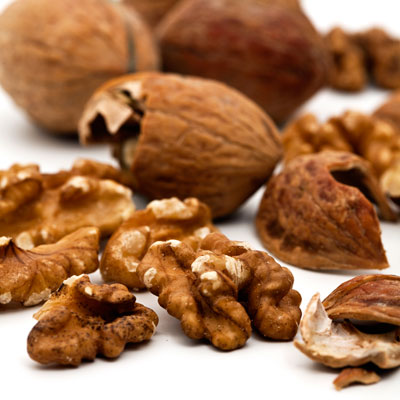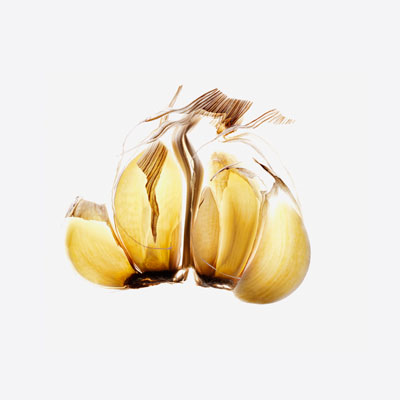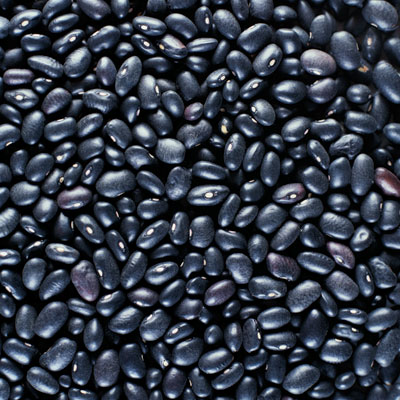Walnuts
Walnuts Their phytosterols (cholesterol-like molecules found in plants) have been shown to block estrogen receptors in breast cancer cells, possibly slowing the cells' growth, says Elaine Hardman, PhD, associate professor at Marshall University School of Medicine in Huntington, West Virginia.Helps fight: breast and prostate cancers
Your Rx: Munching on an ounce of walnuts a day may yield the best benefits, Hardman's research found.

Garlic
Phytochemicals in garlic have been found to halt the formation of nitrosamines, carcinogens formed in the stomach (and in the intestines, in certain conditions) when you consume nitrates, a common food preservative, Béliveau says. In fact, the Iowa Women's Health Study found that women with the highest amounts of garlic in their diets had a 50 percent lower risk of certain colon cancers than women who ate the least.Helps fight: breast, colon, esophageal, and stomach cancers
Your Rx: Chop a clove of fresh, crushed garlic (crushing helps release beneficial enzymes), and sprinkle it into that lycopene-rich tomato sauce while it simmers.

Beans
A study out of Michigan State University found that black and navy beans significantly reduced colon cancer incidence in rats, in part because a diet rich in the legumes increased levels of the fatty acid butyrate, which in high concentrations has protective effects against cancer growth. Another study, in the journal Crop Science, found dried beans particularly effective in preventing breast cancer in rats.Helps fight: breast and colon cancers
Your Rx: Add a serving—a half-cup—of legumes a few times a week (either from a can or dry beans that've been soaked and cooked) to your usual rotation of greens or other veggies.

No comments:
Post a Comment